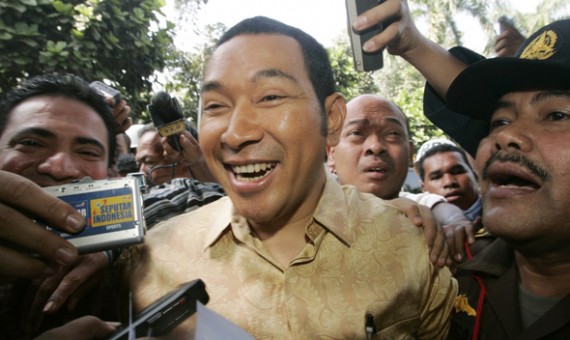The Return of Suharto (Tommy)
More on:

Recent articles that Hutomo Mandala Putra, or “Tommy” Suharto, is gearing up to reenter Indonesian politics, might on the face seem shocking. After all, Tommy’s father oversaw numerous brutal campaigns of repression and Tommy himself served a long sentence in jail for allegedly masterminding the murder of a Supreme Court judge. But Tommy seems to have understood the zeitgeist. In a poll released several months ago, residents of Indonesia, the supposed democratic success story of the 2000s, said, by a margin of two to one, that conditions in the county were better during Suharto’s time than under the government of democratically elected Yudhoyono. In significant part, this frustration is due to the continued challenge of graft in Indonesia, as well as to economic growth that, though strong, has not been well distributed.
The vote-buying, the perceptions of growing corruption among elected politicians, the little bribes demanded over and over, every day, have begun to wear down many Indonesians. When asked, many Indonesian businesspeople reflexively express pride in their young democracy, and in how their country has grown since the chaos and economic crises of the late 1990s. But if a visitor pushes a bit harder, frustration quickly comes to the surface--street vendors, taxi drivers, and even wealthy tycoons will quickly complain about all the bribes they must pay to keep their businesses running. Or as one of Tommy’s top political aides told reporters, “The people don’t believe in the [Yudhoyono] government…thirteen years of ‘reform’ hasn’t made people’s lives better.” In the long run, democracy will help bring transparency to the archipelago, but in the short run it may be exacerbating Indonesia’s corruption problem.
Today, Indonesian political parties are far more competitive: In parliamentary elections, at least five sizable national parties now contest each poll. Unlike in the old days under Suharto, none of the parties today can rely on force to intimidate voters into supporting them, so handing out money during campaigns, or on Election Day, has become far more important. One prominent Indonesian academic, Effendi Ghazali, looked at voter attitudes in several parts of the country, and found that the amount people were paid for their votes had more than doubled between the early 2000s and late 2000s. Similarly, in a process of devolution away from Jakarta, the central government handed over more power to local leaders, and in addition to empowering local politicians it also provided many more opportunities for corruption. “Actors in the bureaucracy, judiciary, political parties, and in the army have reemerged as central players in a corruption free for all in democratic Indonesia,” writes economist Michael Rock in a study of the country. Perhaps, then, Tommy Suharto is but a symptom of a larger problem.
More on:
 Online Store
Online Store
